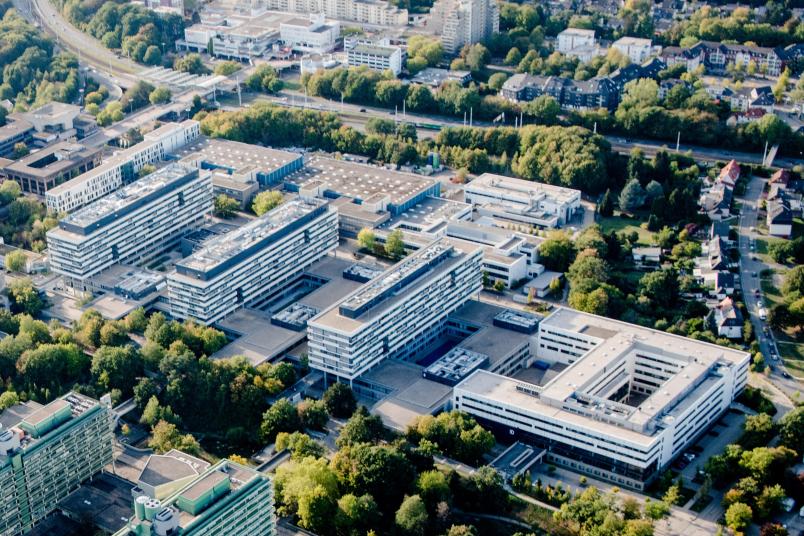
After elevated lead levels
Drinking water in the I-section can be used again
Elevated lead levels can no longer be detected in the drinking water of the I-section. This is the result of extensive sampling. All values on the rest of the campus were also within the normal range.
Update 1 August 2023, 3.45 p.m.:
All results of lead biomonitoring examinations were unremarkable: Since 26 June 2023, 35 lead biomonitoring tests have been carried out by Ruhr University's occupational medicine department on particularly vulnerable employees in the I-section (pregnant women, breastfeeding women and women who are currently planning to have children). All tests were unremarkable, there was no indication of increased lead intake.
Original message from 14 July 2023, 8.21 a.m.:
On the entire campus of Ruhr University Bochum, the lead values in the drinking water are within the normal range. After elevated lead levels were detected in the I-section on 22 June 2023, the water there could not be used as drinking water. All buildings in the I-section are now connected to a replacement water supply line. In consultation with the health department, they were then subjected to particularly thorough testing. The results have been available since 13 July 2023. As a precaution, all other areas of the campus were tested as well. The lead value was clearly below the limit value at all measurement points so that the water can be used as drinking water again on the entire campus.
Interim solution and regular remediation until September 2023
The cause of the lead contamination in the drinking water supply of the I-section was probably an old section of pipe in the Ruhr University supply canal to which the I-section was connected. This section is to be renewed in the coming months by the Bau- und Liegenschaftsbetrieb (BLB); the BLB has been renovating the drinking water supply pipes on campus for several years. The work is supposed to be completed by the end of September 2023. By then, the buildings in the I-section – like all the other rows of buildings – will be connected to a new drinking water supply line.
Until then, the old pipeline section will be bypassed with an interim solution. For this purpose, a replacement pipe has been laid so that the water no longer flows through the section in the supply canal that probably caused the problem. All buildings in the I-section have been individually connected to the bypass.
Main supply line of the public utility company not affected
The main supply line to the campus from the Bochum public utility company was not affected. This was the result of an inspection by the Stadtwerke. At the transfer point from the main supply line to Ruhr-University's supply network, the lead value was within the normal range.
Results of biomonitoring tests are unremarkable
Since 26 June 2023, the Ruhr University's occupational medicine department has been offering lead biomonitoring examinations to particularly vulnerable groups (pregnant women, nursing mothers and women who are currently planning to have children) who work in the I-section. So far, 34 people have taken advantage of the offer, and the results of 32 tests are available. None of the tests showed evidence of increased lead intake. Members of vulnerable groups can currently still be tested by individual appointment.